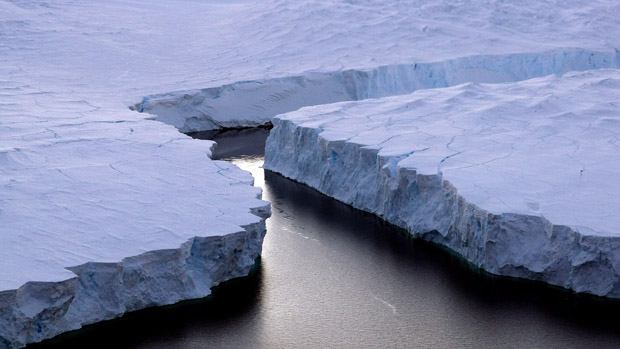Why are rising sea levels so dangerous?
New study finds that rising tides could displace hundreds of millions of people

A free daily email with the biggest news stories of the day – and the best features from TheWeek.com
You are now subscribed
Your newsletter sign-up was successful
Rising sea levels could have “profound consequences” for the planet, scientists have warned.
It has long been believed that the world's oceans would rise by a maximum of just under a metre by the year 2100. However, a new study published by Proceedings of the National Academy of Sciences forecasts that the real level may be around double that figure, due to accelerated melting in Greenland and Antarctica.
The latest research, carried out by a team of international climate academics, says such a scenario could lead to the displacement of hundreds of millions of people. “To put this into perspective, the Syrian refugee crisis resulted in about a million refugees coming into Europe,” said Professor Jonathan Bamber, one of the authors of the study.
The Week
Escape your echo chamber. Get the facts behind the news, plus analysis from multiple perspectives.

Sign up for The Week's Free Newsletters
From our morning news briefing to a weekly Good News Newsletter, get the best of The Week delivered directly to your inbox.
From our morning news briefing to a weekly Good News Newsletter, get the best of The Week delivered directly to your inbox.
“That is about 200 times smaller than the number of people who would be displaced in a 2m sea-level rise.”
The report says the world would lose an area of land equal to 1.79m square kilometres - equivalent to the size of Libya - with much of the erasure affecting important food growing areas.
The Daily Mail says the scenario would “wipe out over a million square miles of farming and other food producing lands,” while Metro says that the outcome of the predicted changes would be “catastrophic”.
Major cities, including London, New York and Shanghai would be under threat and huge areas of Bangladesh would become simply uninhabitable.
A free daily email with the biggest news stories of the day – and the best features from TheWeek.com
The researchers believe that if emissions continue on the current path then the world's seas could rise as much as 238cm by 2100. Although this would be a worst-case environmental scenarios, they believe it is a prospect worth taking seriously.
Acknowledging the chances of this are around 5%, Bamber said: “If I said to you that there was a one in 20 chance that if you crossed the road you would be squashed you wouldn't go near it.
“Even a 1% probability means that a one in a hundred year flood is something that could happen in your lifetime. I think that a 5% probability, crikey - I think that's a serious risk.”
The study suggests that there is still time to avoid this catastrophe, but only if there are major cuts in emissions across the planet.
-
 The ‘ravenous’ demand for Cornish minerals
The ‘ravenous’ demand for Cornish mineralsUnder the Radar Growing need for critical minerals to power tech has intensified ‘appetite’ for lithium, which could be a ‘huge boon’ for local economy
-
 Why are election experts taking Trump’s midterm threats seriously?
Why are election experts taking Trump’s midterm threats seriously?IN THE SPOTLIGHT As the president muses about polling place deployments and a centralized electoral system aimed at one-party control, lawmakers are taking this administration at its word
-
 ‘Restaurateurs have become millionaires’
‘Restaurateurs have become millionaires’Instant Opinion Opinion, comment and editorials of the day
-
 Epstein files topple law CEO, roil UK government
Epstein files topple law CEO, roil UK governmentSpeed Read Peter Mandelson, Britain’s former ambassador to the US, is caught up in the scandal
-
 Iran and US prepare to meet after skirmishes
Iran and US prepare to meet after skirmishesSpeed Read The incident comes amid heightened tensions in the Middle East
-
 Israel retrieves final hostage’s body from Gaza
Israel retrieves final hostage’s body from GazaSpeed Read The 24-year-old police officer was killed during the initial Hamas attack
-
 China’s Xi targets top general in growing purge
China’s Xi targets top general in growing purgeSpeed Read Zhang Youxia is being investigated over ‘grave violations’ of the law
-
 Panama and Canada are negotiating over a crucial copper mine
Panama and Canada are negotiating over a crucial copper mineIn the Spotlight Panama is set to make a final decision on the mine this summer
-
 Why Greenland’s natural resources are nearly impossible to mine
Why Greenland’s natural resources are nearly impossible to mineThe Explainer The country’s natural landscape makes the task extremely difficult
-
 Iran cuts internet as protests escalate
Iran cuts internet as protests escalateSpeed Reada Government buildings across the country have been set on fire
-
 US nabs ‘shadow’ tanker claimed by Russia
US nabs ‘shadow’ tanker claimed by RussiaSpeed Read The ship was one of two vessels seized by the US military